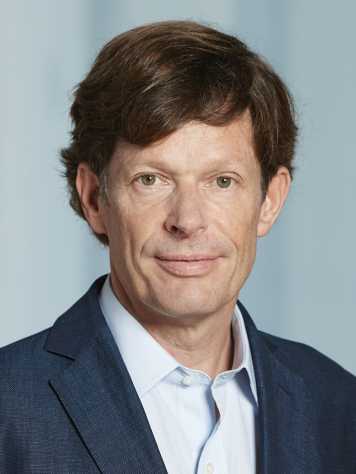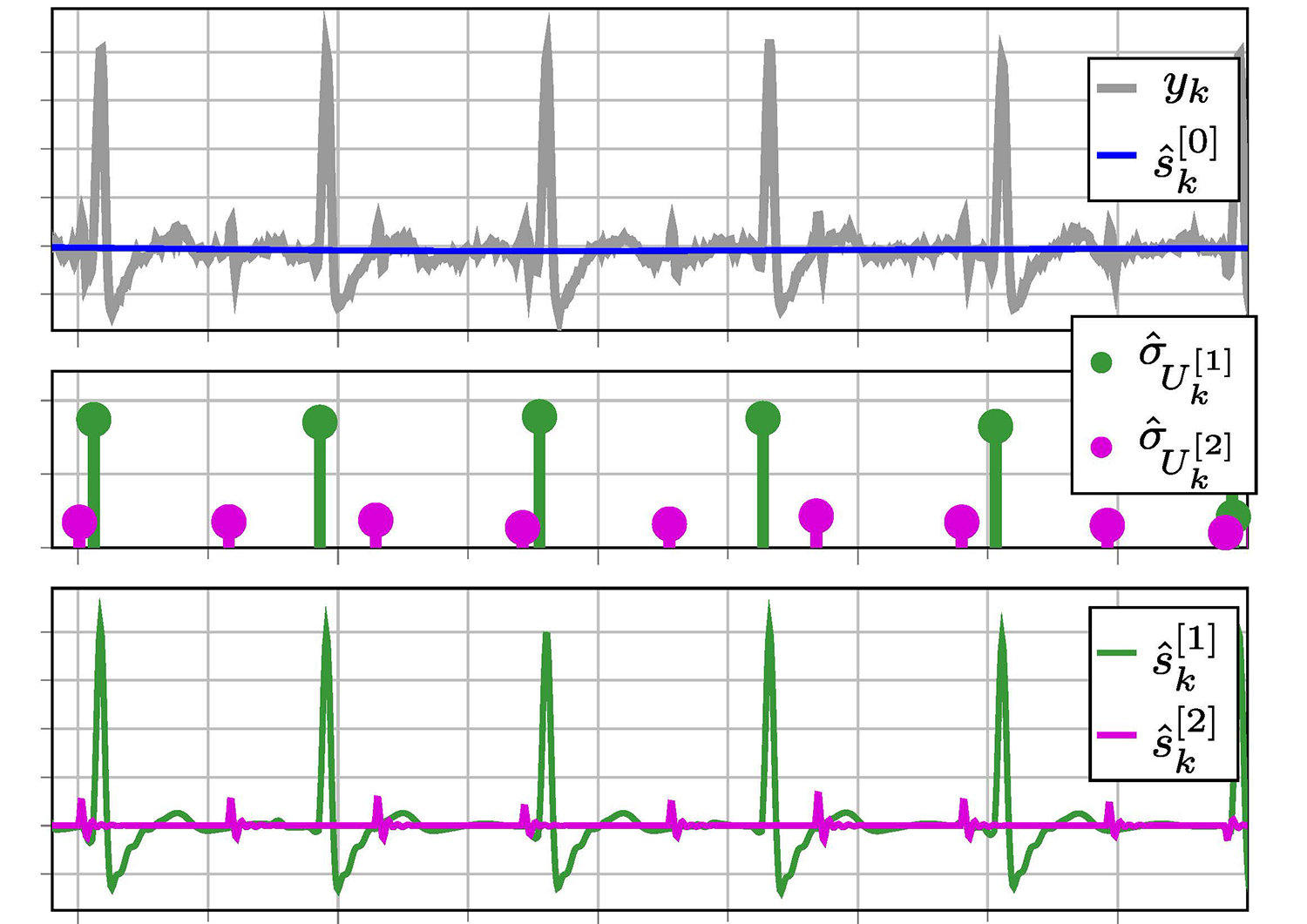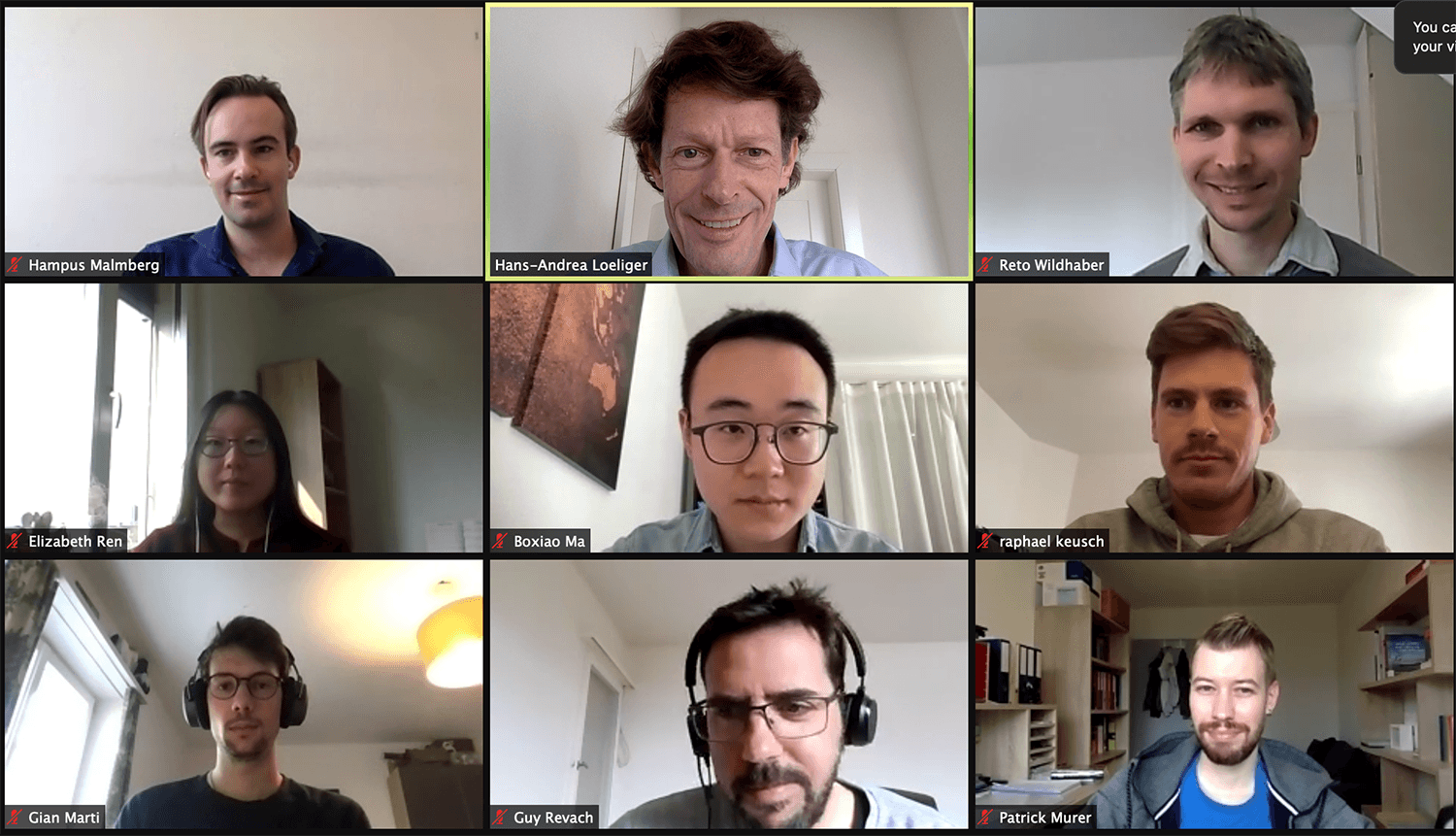"My research is primarily about mathematical understanding"
Hans-Andrea Loeliger is a professor at the Signal and Information Processing Laboratory. In this interview he talks about basic research in signal processing.
Prof. Loeliger, what is your main area of research?

I have mainly been working on fundamental problems in the area of "signals, systems, information, communication". For example, in recent years we have developed a new approach to analog-to-digital conversion. In another project, we are investigating, in a mathematical model, how recurrent neuronal networks can store dynamic content, so-called firing sequences.
What brought you to this field? Why does it fascinate you?
I played with electronic circuits as a teenager, and later with computers. It was always clear to me that I wanted to become an electrical engineer. During my studies, I got to know my current field of research, which is primarily about mathematical understanding. I found that fascinating, and I still do.

You graduated in electrical engineering from ETH Zurich yourself. What do you remember most fondly?
During my studies, the ETZ and ETL buildings were new. Oddly, today I'm again sitting in the same office in the ETF building as I did over 30 years ago as a doctoral student. Back then, there was still a large Faraday cage in one corner to shield electromagnetic radiation.
What are the biggest changes and developments in your field since you graduated?
I graduated as an electrical engineer in 1985, when there was no internet in the modern sense and no digital mobile phones. When you opened an electronic device, you could still see many components directly and tap the signals with measuring devices. Today, students no longer have this possibility.
What is the impact of your research on society?
In my early days as a researcher, I worked mainly on error-correcting codes. Such codes – not mine – have become indispensable elements of our digital infrastructure: every laptop and every mobile phone contains several systems that work with such codes.
Another example: One of my doctoral students, in collaboration with the Inselspital in Bern, developed a method to record the electrical activity of the human heart using a probe in the esophagus. Such a probe is closer to the heart than the usual electrodes on the outside of the body and also works during an operation, which is clinically interesting. However, the demands on signal processing are enormous. My doctoral student developed a whole range of new signal processing methods and actually made everything work.
And what are currently the biggest challenges in your field of research?
I give you two examples that I personally find interesting.
The first example is the interpretation of sensor data in general, like "What does this camera see here?" or "What do my microphones actually hear now?" Despite great progress, this topic remains a huge challenge.
The second example is the question of how biological neural networks work from the engineer's point of view. This question is largely open. Artificial neural networks have achieved impressive successes, but many of the achievements of the biological original are not understood and still seem technically a long way off. In both examples, the challenge, in my view, is primarily intellectual, not technological.
“"We should not naïvely believe in technology." ”Prof. Hans-Andrea Loeliger
How do you like ETH as a research institution?
It's excellent. We have very good students and doctoral students, we have generous basic funding, and we are given great freedom in research. That's how it should be!
With which colleagues within and outside the department do you have collaborations?
At the moment, we have a small project with a doctoral student of Prof. Richard Hahnloser, which is about analyzing the calls of orcas in the North Atlantic. A few years ago we had a collaboration with Prof. Fäh at the Department of Earth Sciences. And last year a joint doctoral student with Prof. Dillier at the University Hospital Zurich finished her project on hearing aids.
How is your group composed? Are you currently looking for doctoral students?
I usually have five to seven doctoral students that I directly supervise myself. This year, there are actually still open positions.
What courses do you teach this semester?
In the spring semester, I teach "Algebra and Error Correcting Codes" and "Advanced Signal Analysis, Modeling, and Machine Learning", both on Master’s level. In the autumn semester, I teach "Discrete-time and Statistical Signal Processing" and "Introduction to Estimation and Machine Learning".
Will the corona crisis change teaching in the long term? Do you think that you will increasingly use digital learning environments and forms in your lectures in the future?
The most important thing in teaching is that the content is and remains thoroughly thought through. Technology plays a role in delivery, of course. We'll see how this settles down after Corona; I am certainly thinking about it. However, we should not naïvely believe in technology, and we should not allow to be dominated by it.
